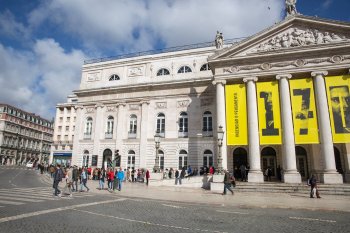Explore the best places
Cultural Centers in Lisboa
Museu Calouste Gulbenkian
- heritage
Avenida de Berna, 45-A
1067-001, Lisboa
The museum is a result of Calouste Sarkis Gulbenkian’s will, an Armenian that gathered more than 6000 works of art during his life, that are now assembled in this beautiful space. It is an impressive collection, covering a temporal space from the ancient Egyptian empire until the XX century. Here are represented different civilizations and hemispheres.
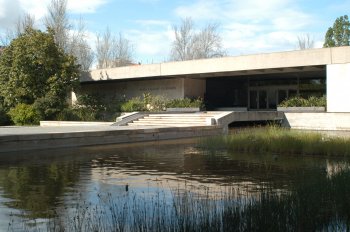
MUDE - Museu do Design e da Moda
- heritage
Rua Augusta, 24
1100-053, Lisboa
The CHANGE, Design and Fashion Museum opened its doors to 22 May 2009. Even before the start of work to adapt the former headquarters of the BNU, on Rua Augusta, to their new museological functions, the CHANGE began offering a continuous programming where are present the different perspectives and languages of design.
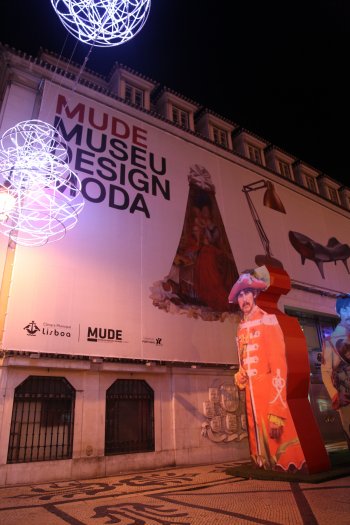
Museu Banksy Lisbon
- heritage
Rua Viriato, 25-B
1050-234, Lisboa
Neste museu poderá ver mais de 100 reproduções da obra de Banksy, através de videoinstalações, grafites, quadros, projeções e murais.
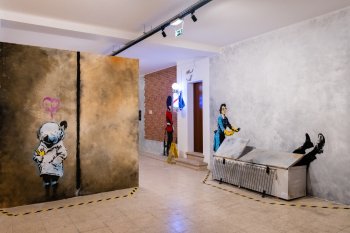
Centro Interpretativo da História do Bacalhau
- art
Terreiro do Paço - Torreão Nascente
1100-016, Lisboa
Neste espaço, conta-se uma das mais épicas histórias de Portugal - a descoberta da Terra Nova e a aventura nos mares gelados pela pesca do bacalhau. Pretende ser um lugar de memória dedicado ao bacalhau e à ligação dos portugueses com o Mar.
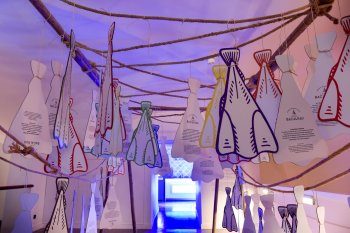
Escola Portuguesa de Arte Equestre
- art
Calçada da Ajuda, 102
1300-006, Lisboa
Localizada nos Jardins do Palácio Nacional de Queluz e com apresentações regulares no Picadeiro Henrique Calado, na Calçada da Ajuda, a Escola Portuguesa de Arte Equestre proporciona um regresso ao passado, dedicando-se à preservação das artes equestres.
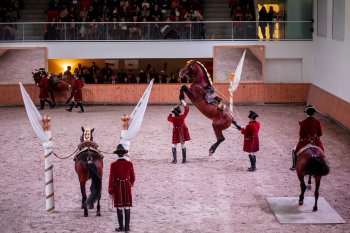
Centro Interpretativo da Ponte 25 de Abril - Experiência Pilar 7
- art
Avenida da Índia - Pilar 7 da Ponte 25 de Abril
1349-028, Lisboa
The Interpretive Center of the 25 de Abril Bridge (Pilar 7 Experience) offers a unique discovery of the 25 de Abril Bridge. The experience culminates with the ascension, through an elevator, to a panoramic viewpoint, which is up to the board of the bridge and allows an unprecedented and privileged view of the city of Lisbon, especially on the area of Belém and the Tagus River.
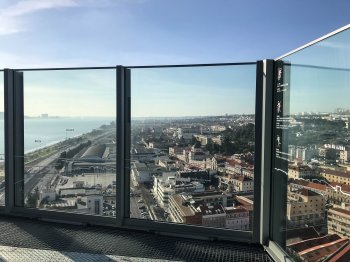
Museu do Tesouro Real / Museu do Palácio Nacional da Ajuda
- heritage
Largo da Ajuda
1349-021, Lisboa
Built in the XIX century, in a neoclassical style, the palace was the permanent residence of the King D. Luís, his wife and his children, which lived here on the second half of eight hundred. The throne-room, the supper-room and the “Despacho” room are preserved as in the time of the Royal family. The museum exhibits collections of decorative arts from the XIX century, silvers, paintings, tapestry and furniture.
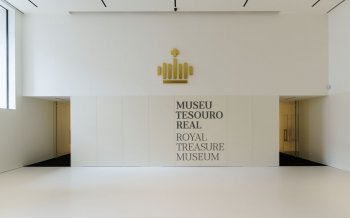
Reservatório da Mãe d'Água das Amoreiras
- heritage
Praça das Amoreiras, 10
1250-020, Lisboa
The reservoir Mãe D’Água of the Amoreiras was planed by the architect Carlos Mardel in 1746. Its function was to take and distribute the water supplied by the Águas Livres Aqueduct. It has a terrace with panoramic views of the city.
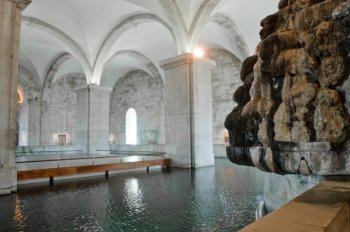
Museu Arqueológico do Carmo
- heritage
Largo do Carmo
1200-092, Lisboa
In this museum, placed in the ruins of the former Carmo convent and church (XIV century), it is possible to find pre-historic, roman, visigothic and medieval objects.
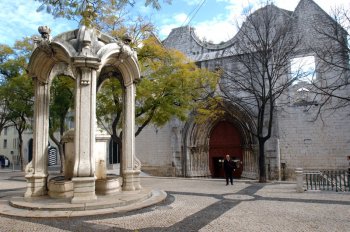
Teatro Nacional Dona Maria II
- art
Praça Dom Pedro IV
1100-201, Lisboa
Placed on the north side of Rossio, the National Theatre Dona Maria II, which name pays homage to the daughter of Dom Pedro, was built in the 1840s by the Italian architect Fortunato Lodi. The façade of this neoclassic building is composed by six columns coming from the São Francisco Convent and is ended by a triangular fronton where the figures of Apollo and the Muses are sculpted. On top of the fronton is possible to see the statue of Gil Vicente, maybe the most important Portuguese dramaturge of all times, considered to be the father of the national theatre.
